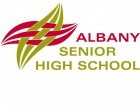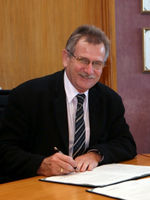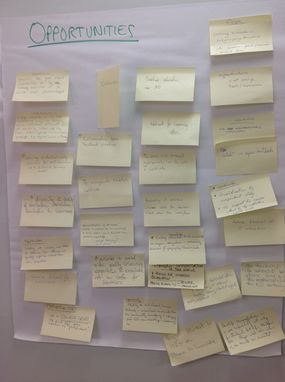Symposium report
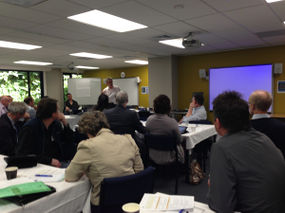
Following the UNESCO World Open Educational Resources (OER) Congress and subsequent release of the 2012 Paris OER Declaration the symposium aimed to:
- consider strategic opportunities and barriers for OER in New Zealand;
- explore policy enablers and practices for harnessing the potential of open education approaches for the benefit of the formal education sector in New Zealand; and
- commence work on open “proposals for action” as the first step towards planning the way forward for a sector-wide response to open education in New Zealand.
Contents
- 1 Sector participation
- 2 First session: Introduction and international context comparison of participant views and perceptions
- 3 Second session: Selected national and international case study examples
- 3.1 National case study: Albany Senior High School
- 3.2 National case study: OER university network
- 3.3 International case study: OER and the pedagogy of discovery
- 3.4 International case study: The power of open collaborative system services, BCcampus
- 3.5 Recording of opportunities, barriers and policy issues
- 4 Third session: Proposals for action
Sector participation
| Welcome from the Commonwealth of Learning |
|---|
| Professor Asha Kanwar, President and CEO of the Commonwealth of Learning welcomes NZOpenEd participants. |
Designed as an open national symposium, invitations were extended to sector stakeholders in New Zealand and advertised on a number of public lists. Places were allocated to all individuals who expressed an interest to attend the symposium. The confirmed list of participants provided a good mix of senior leaders, government agencies and educational practitioners representing the compulsory school sector and the tertiary education sector. Results from the pre-seminar survey indicated that: 44% of attendees identified as senior leaders, 40% as educational practitioners, 16% as state agency officials and 8% as interested people and representatives from the non-governmental agency sector. 35% of respondents reported that the compulsory school sector was their main focus of interest. The planning, agenda and workshop resources were developed transparently and hosted on the WikiEducator website.
First session: Introduction and international context comparison of participant views and perceptions
Professor Asha Kanwar, President and Chief Executive of the Commonwealth of Learning (COL) welcomed participants and explained COL's perspective on open education:
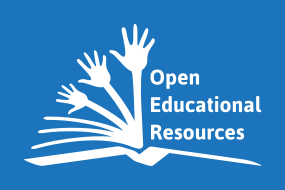
| “ | COL believes that knowledge is the common wealth of humankind and that all educational content developed with public funds must be made available under open licenses so that more people are able to benefit from the initial investment. | ” |
| —Asha Kanwar | ||
Professor Kanwar highlighted the 2012 Paris OER Declaration which was developed in collaboration with the COL. She also referenced the communiqué from the 18th Conference of Commonwealth Education Ministers which emphasised the "need to set up a common platform for OER materials for harmonisation and ease of access." Kanwar suggests that open education is likely to receive increased attention because governments tend to take international agreed documents seriously.
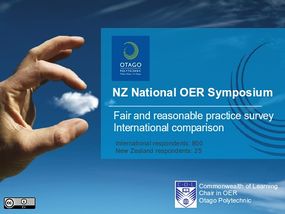
The overwhelming majority of respondents (96%) agree that educational content funded by taxpayer revenue should be released freely for use by everyone in accordance with the principles of the New Zealand Government Open Access Licensing Framework (NZGOAL). Moreover, 88% of New Zealand respondents do not think that education institutions who give away teaching materials will loose competitive advantage through reduced student enrolment.
Second session: Selected national and international case study examples
Two national and two international case studies demonstrating open education in the "real world" world were selected for the symposium. The New Zealand case studies covered both the compulsory school and tertiary education sectors. The purpose of these case studies was to serve as a catalyst for participants to identify opportunities, barriers and policy issues for OER in New Zealand.
National case study: Albany Senior High School
| Opening education at Albany Senior High School |
|---|
| In this EDtalks video Mark Osborne, Deputy Principal of Albany Senior High School, talks about how WikiEducator and a Creative Commons policy in a school can enhance teaching and learning in the school sector. |
The default copyright of teaching materials produced by New Zealand teachers belongs to the School Board of Trustees under all rights reserved. Mark shared how Albany Senior High School became the first high school in New Zealand to adopt a default Creative Commons Attribution licensing policy.
There is a unique opportunity for the New Zealand compulsory sector to follow the examples of Albany Senior High School and Warrington School, a primary school based in Otago, who have adopted Creative Commons policies because NZGOAL invites school boards of trustees to implement the open licensing principles of the framework.
Both of these school's technology infrastructure is based on free software with the advantage that learners are not required to purchase any software for home use. Combined with these school's open intellectual property policy, Albany Senior High School is New Zealand's first fully open-source high school, with Warrington schooling claiming this accolade for the primary school level.National case study: OER university network
| The OER university international network |
|---|
| Wayne Mackintosh summarises the OER university international innovation partnership. |
Wayne Mackintosh, the Commonwealth of Learning Chair in OER, commended the foresight and leadership of the New Zealand founding anchor partners of the OERu network including the NMIT, NorthTec, the Open Polytechnic, Otago Polytechnic and the University of Canterbury. Wayne extended an open invitation to all New Zealand tertiary education institutions to join this international partnership.
Phil Ker, Chief Executive of Otago Polytechnic stressed that it is time to act and summarised the open education benefits for individuals, organisations and the system.
For individuals, OERs in combination with the OERu assessment-only model, could save learners NZ$12000 for a three year degree. Providers can: reduce costs through collaborative development and reuse of existing materials; establish new markets and generate new revenue streams through assessment and related services; and diversify curriculum offerings using OER. At the system level, Ker showed that if 1% of New Zealand learners were to graduate using OER-based learning, savings of $12 million in average subsidy would accrue. However, if 5% of New Zealand tertiary learners were to graduate through the OERu model, the national system would generate savings of $100 million (based on 5% of the government grant) which could be reinvested in assessment subsidies and other forms of learner support for these OER learners.International case study: OER and the pedagogy of discovery
| The pedagogy of discovery |
|---|
| Emeritus Professor Jim Taylor AM. demonstrates the practice of using OER for innovative pedagogy. |
The growing inventory of OERs and open access materials available on the web provides the opportunity to develop courses using a "free range" learning strategy where learners can customise the content to suite their own needs and interests within the context of a university-level course. A key feature of this course is how digital and learning literacies required for the 21st have been integrated into the teaching strategy.
The AST1000 course is based entirely on OERs and open access materials and will be launched as the first prototype course of the OERu collaboration.International case study: The power of open collaborative system services, BCcampus
| The power of open collaborative systems |
|---|
| David Porter, Executive Director of BCcampus in Canada provides a systems view of open education in practice. |
BCcampus is a publicly funded organization that uses information technology to connect the expertise, programs, and resources of all B.C. post-secondary institutions under a collaborative service delivery framework. They provide valued services to institutions, ensuring B.C. learners, educators, and administrators get the best, most effective technologies and services for their learning and teaching needs. BCcampus provides an ICT infrastructure for student data exchange, shared services, online learning and distance education, communities of practice and online resources for educators.
BCcampus are world leaders in OER development having implemented a government investment of over CAD$10 million since 2003 for the shared benefit of all BC post-secondary institutions. Recently the Minister of Advanced Education announced an open textbook project for the 40 most popular first- and second-year courses in the province's public post-secondary system.Recording of opportunities, barriers and policy issues
Drawing on ideas generated from the two national and two international case studies, participants were invited to identify a maximum of two opportunities, two barriers and two policy issues. These contributions have been recorded in the wiki. The following categories have emerged from the issues identified by the participants:Third session: Proposals for action
The final session was designed to focus on strategic planning issues, specifically taking the the opportunities, affordances, challenges and policy issues for open education in New Zealand as the starting point for a plan of action. Participants commenced work on open “proposals for action” as the first step towards planning the way forward for a sector-wide response to open education in New Zealand.
In an open plenary session the group identified five proposals for action and initiated fist drafts in the wiki for ongoing refinement and implementation:



